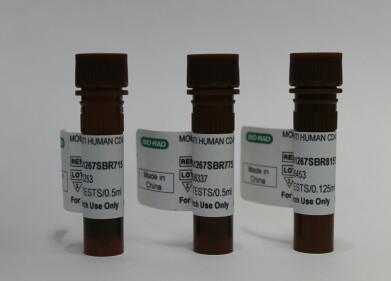Laboratory Products
Intelligence and global collaborations the key to anti-doping advances
Jul 18 2012
Intelligence and global collaborations have been the key to anti-doping advances, according to Andy Parkinson, chief executive UK Anti-Doping, who spoke about laboratory developments ahead of the London 2012 games which starts July 27th.
This year will see more athletes tested than ever, with messages been sent out prior to the games advising all cheating athletes that they will be caught. Professor David Cowan, who heads the most advanced drugs testing system ever, recently warned: "If you cheat you won’t make gold. Anyone cheating will get caught."
Established as a standalone National Anti-Doping Organisation in December 2009, UK Anti-Doping was established with the remit to protect sport in the UK from the threat of doping. One of the first steps made by the organisation was to make formal links to law enforcement agencies such as UK Borders to provide information. This has helped shape the programme, which has become a huge success story in Britain.
Mr Parkinson said: "Information collated by the intelligence team helps to shape our testing programme so that we are not just testing randomly – up to 40 per cent of our tests are targeted. This approach, alongside a move to a more global approach to tackling doping in sport, with partners working collaboratively, have been the two biggest advances of recent years."
This is a record that has propelled the establishment into a position to offer the most comprehensive anti-doping scheme the Olympic games has ever seen. Some 5,000 urine and blood samples will be taken this summer, which eclipses the 3,667 samples taken in Beijing.
Additionally, the lab turn-around is going to be quick, efficient and accurate. Mr Parkinson added: "During the Olympic and Paralympic Games, the GSK-sponsored anti-doping laboratory will be in operation 24 hours a day, seven days a week. The lab will provide results for most tests within 24 hours to 48 hours.
"For a few tests, such as the endurance boosting drug erythropoietin (EPO), up to 72 hours will be required to get results. The turnaround time of a negative sample will be 24 hours."
Posted by Neil Clark
Digital Edition
Lab Asia 31.2 April 2024
April 2024
In This Edition Chromatography Articles - Approaches to troubleshooting an SPE method for the analysis of oligonucleotides (pt i) - High-precision liquid flow processes demand full fluidic c...
View all digital editions
Events
May 05 2024 Seville, Spain
InformEx Zone at CPhl North America
May 07 2024 Pennsylvania, PA, USA
May 14 2024 Oklahoma City, OK, USA
May 15 2024 Birmingham, UK
May 21 2024 Lagos, Nigeria




.jpg)













